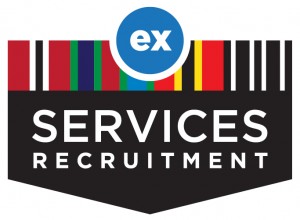Remembering D-Day - 70 years on
Today we pause to remember the sacrifice, daring and courage of all those involved in the D-Day landings at Normandy, 70 years ago. The following excerpt from the History Channel, remembers that day.
On 6 June 1944, just after midnight, the Allied assault upon ‘Fortress Europe’ began. The operation caught the German military high command unaware. Low tides and bad weather – combined with Allied deception plans – had convinced the Germans that an attack was unlikely at that time.
The initial Allied assault was made by airborne infantry, who secured key bridges and crossroads on the flanks of the landing zone. Some of their most important and celebrated achievements included the capture of Pegasus Bridge and the town of Sainte-Mère-Eglise. Commandos also attacked key targets ahead of the main landings. One remarkable feat was the attack by US Rangers on Pointe-Du-Hoc, a headland which housed a coastal battery that threatened the landing beaches. The successful assault involved scaling a 30 metre cliff face under German fire.
Early Allied success was aided by the confused German reaction. It was only at 6 am, when Normandy’s German defenders saw the horizon obscured by an unbroken line of Allied ships, that all doubt was removed. Along nearly 100 kilometres of coast, Allied warships and aircraft hit German defences. At 6:30, US soldiers went ashore by landing craft at Utah and Omaha beaches. An hour later, the British and Canadians arrived at the beaches Gold, Juno and Sword. Luckily, US troops at Utah accidently landed two kilometres from their target, on a virtually unguarded beach.
On Omaha Beach, where aerial bombardment had done little to dent German defences, the Americans met fierce resistance. From cliff-top bunkers, the German's pummelled US troops with machine gun fire and shells as soon as landing craft ramps were lowered. Those who made it ashore found it impossible to advance across 200 metres of open beach. Amphibious tanks intended to cover the infantry’s advance had sunk in the rough seas. The news from Omaha was so bad that the landings there were almost called off, but eventually small groups of American infantry worked their way around the German defences, outflanked and stormed them, allowing the beachhead to be secured. But Omaha cost the Americans more than 2,000 casualties.
When British and Canadian troops landed at 7.30, supported by tanks, the tide was high, leaving fewer metres of beach to traverse. Although mines sunk a number of boats, soldiers succeeded in silencing German machine guns within half an hour. At the day’s end, although they had not yet taken their objective of the town of Caen, the soldiers had penetrated six kilometres inland, and their foothold in Normandy was secure. At 6pm, Prime Minister Churchill addressed the House of Commons, and announced the astounding success of an operation which would go down in military legend.
Here at Superior Personnel, one of our Senior Consultant's Barbara Clark, has a personal connection to D-Day. Her Grandfather, Frank Edward Clark, was a signaller in the Royal Navy. During the D-Day landings, Frank drove one of the landing craft full of troops to the beach, and in doing so played his part in the eventual liberation of Europe.
To Frank Edward Clark and all those who played a part in the D-Day landings 70 years ago, we give thanks and remember their courage and sacrifice.



